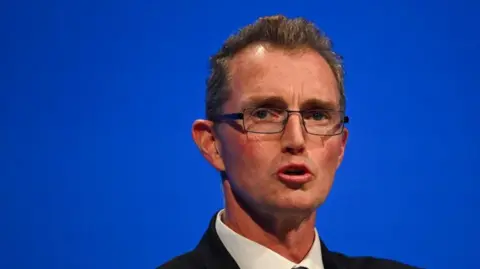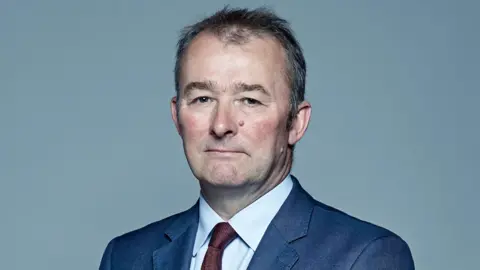By Gareth Lewis, Political editor, BBC Wales • David Deans, Political reporter, BBC news
 Getty Images
Getty ImagesIn some areas of Wales the battle at the general election ballot box will be fiercer than others.
Ahead of voters heading to the polls on Thursday, parties have been focusing their efforts in places where they think they can win, avoiding wasting money on communities where they don’t hold out much hope.
Out of Wales’ 32 seats there are about 10 or 11 key battlegrounds.
It does not mean there won’t be upsets elsewhere, but these are the fights that we will be keeping a close eye on.
If the night goes badly for the Conservatives, one existing and three former Welsh secretaries could face losing their seats in Wales.
On the other hand, a bad night for Labour could see the party struggle to regain the ground it lost to the Tories at the last general election.
Meanwhile Plaid Cymru are hoping to hold on – and move forward – in their own backyard in the west and north of Wales.
North Wales
North Wales went from predominantly red to blue in 2019, but there is also a bit of Plaid green in play.
Ynys Môn is a three-way fight between the incumbent Tory Virginia Crosbie, who has been campaigning hard on her record on Wylfa, Plaid leader of the local council Llinos Medi and the appropriately named Ieuan Môn Williams, who hopes to win back a seat Labour lost five years ago. The seat is one of Plaid’s big targets.
Montgomeryshire and Glyndŵr is notionally the Tories’ safest Welsh seat, but all bets might be off after their candidate Craig Williams was caught up in the gambling scandal.
Labour has never taken this seat, yet.
Clwyd East could be a real battleground, with a potentially loyal Tory vote and issues over bin collections for Labour-run Denbighshire council, while Labour are fighting to regain Wrexham and win the new seat of Bangor Aberconwy.
South Wales
Welsh Secretary David TC Davies is one of a few cabinet ministers fighting to save their seats in his backyard of Monmouthshire.
The seat previously known as Monmouth has had a slab of nominally Labour vote chucked at it. Labour’s Catherine Fookes – bolstered by a visit from Sir Keir Starmer earlier in the campaign – is working hard to cause an upset.
Meanwhile, former Welsh Secretary Alun Cairns could be under threat in the Vale of Glamorgan, where he is facing Labour’s Kanishka Narayan.
Polls have suggested that Bridgend could switch back to Labour.
 Getty Images
Getty ImagesMid and west Wales
Caerfyrddin is one of the genuine three-way battles, although perhaps a fight too far for Conservative chief whip Simon Hart – who is also David TC Davies’ predecessor as Welsh secretary.
If he were to lose, it would be one of the night’s big Tory casualties.
Farming and pylons – Welsh Labour government responsibility – have been big local issues, which Plaid have been trying to capitalise on. Both parties really want to win this seat.
Brecon, Radnor and Cwm Tawe is another three-way scrap. It’s being defended by Conservative Wales Office Minister Fay Jones, with both Labour and Lib Dems confident of their chances.
Is the Labour-leaning nature of Cwm Tawe, added to the constituency under boundary changes, over-assumed? Or will voters in the Swansea Valley make a different choice after years of living in a safe Labour seat?
Keep an eye on Mid and South Pembrokeshire, where another former Conservative Welsh Secretary, Stephen Crabb, has been waging his campaign under the media radar. Labour have selected a non-local candidate who has publicly supported Vaughan Gething.
The Withyhedge landfill site, owned by a controversial donor to the first minister, is in the constituency – a fact Mr Crabb has used repeatedly in social media advertising.
You can see full lists of candidates for all the seats above here.


